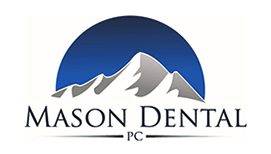
Keeping your teeth clean and safe is essential for both your dental health and overall well-being. For this reason, you should consider getting regular dental care at all stages of your life, including pregnancy. And if you tend to feel anxious or nervous about treatment, you may be able to receive sedation therapy to help you relax throughout your appointment. But is this safe if you’re with child? Keep reading to learn the safety of dental sedation for pregnant women and which types to consider!
Is Dental Sedation Safe During Pregnancy?
In most cases, it might be best to hold off on more complex or invasive dental procedures until after pregnancy. However, there are certain situations where getting treatment is necessary to preserve your oral health. These may include gum disease therapy to stop the spread of infection, or even dental implant surgery to maintain your smile. If these treatments are required, you’ll be provided with a local anesthetic. Fortunately, this isn’t harmful to the baby! Since sedation therapy isn’t as strong as local anesthesia, this makes it completely safe during pregnancy.
The Types of Sedation Therapy for Pregnant Women
There are several kinds of dental sedation treatments, each having varying levels of strength and potency. Here are the two options that are safest for pregnant patients and what to expect from them:
- Nitrous oxide sedation: Also known as “laughing gas,” this method is the mildest form of relaxation. Your dentist will place a mask over your mouth and nose to administer the treatment. By breathing it in, you’ll feel significantly calmer during your dental visit. You won’t be unconscious from nitrous oxide, so you can still respond to your dentist and remember your appointment afterward.
- Oral conscious sedation: Instead of breathing in laughing gas, you can opt for prescribed oral sedatives to prepare yourself for a dental procedure. With this method, you’ll be required to take an antianxiety medication 30 minutes to an hour before your appointment. Once you arrive, you’ll feel more relaxed to undergo your treatment. You’ll still be conscious enough to respond to simple commands or answer questions, but you may not remember your entire visit. Since this sedation is stronger, you’ll need a friend or family member to take you to and from your appointment.
It’s important to know that these sedation options are safe for you and your baby, especially if you need to undergo certain dental procedures to protect your smile and overall health. But if you still have further questions about their safety, don’t hesitate to consult your dentist!
About the Author
Dr. Jonathan E. Mason earned his dental doctorate from the University of Connecticut School of Dental Medicine and has delivered high-quality care for well over a decade. He’s also a member of several groups like the Academy of General Dentistry, the Connecticut State Dental Association, and the American Dental Society of Anesthesiology. He provides a vast array of comprehensive and advanced treatments, including emergency dentistry, dental crowns and bridges, and sedation therapy to help you relax during your procedure. If you’d like to know more about the safety of dental sedation during pregnancy, feel free to visit our website or call 802-362-1099.
